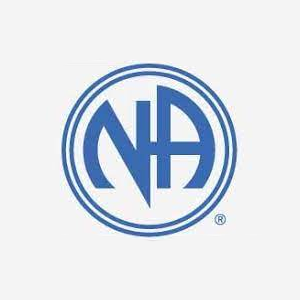Drug & Alcohol Rehab in Grimsby

How Does Rehab Work?
Rehab involves the support services and therapies that individuals with drug and/or alcohol addiction receive to overcome addiction and subsequent relapse. When a medical assessment and detox are completed, individuals will start addiction treatment in the form of therapy. Treatment consists of therapy from a qualified counsellor, the attendance of group meetings as with a 12 Step programme, and the option of inpatient or outpatient rehabilitation. Inpatient rehab services require that clients live at the residence or centre for the duration of therapy. Outpatients will attend therapy by counselling or meetings but will not stay at the facility. Consultation with a medical expert as well as an individual assessment can help evaluate if inpatient or outpatient services are suited to your needs.
What Happens During Residential Rehab?
Entering rehab is the initial step towards sobriety. While the journey can be challenging, it is possible to avoid relapse. You could possibly feel apprehensive about the process, so let us assist you by taking a good look at what to anticipate during rehab.
Prior to entering treatment, every individual will be assessed by a medical professional. The aim is to create a treatment plan suited to individual health and wellness needs. This is particularly important for those with a history of addiction and comorbid mental conditions including depression, anxiety or bipolar disorder.
The next stage of a rehabilitation programme is detoxification. Detoxing from substances requires the removal of the drug or alcohol from the body, typically over a period of time that limits withdrawal symptoms. Detox should ideally be monitored professionally to assist those with withdrawal symptoms. When the substance is removed from your body, the next stage of treatment begins (therapy).
Rehab includes meeting with a counsellor for private & group sessions, participation in skill-building activities as with an inpatient or residential rehab, or group meetings that are common with outpatient 12 Step programmes. We explore the various phases of rehab in greater detail.
1. Assessment

Before treatment can be delivered, a health assessment is conducted. This involves an in-depth look at individual medical history, substance use, and the presence of mental health issues. Patients can be accommodated with a medical assessment by phone. The admissions staff team will be responsible for the telephone assessment to decide on the best form of therapy. Along with determining a treatment plan, the admissions team or medical professional will have reliable information to facilitate the detoxification.
To help you or someone you know, receive the best possible therapy for addiction and substance use, it is important to receive an individual assessment by a dedicated professional. The assessment will aid the course of therapy including treatment for anyone with comorbid illnesses such as anxiety.
2. Detox

If you are addicted to drugs and/or alcohol or you have a substance in your body, you must undergo detox before you can proceed with a recovery programme. Detox is performed in an inpatient facility or a medical facility. During detoxification, the substance is gradually cleared from the body which often results in withdrawal symptoms.
It is best to have a supported medical detox because experienced staff are readily available to help you through the withdrawal process. As the substance is no longer consumed, you may start to experience withdrawal symptoms. Without professional aid, there is a higher risk of relapse. Detox is followed with a fully tailored therapeutic programme. You can attend inpatient or outpatient therapy that is managed by trained addiction therapists and a dedicated team.
3. Therapy

Therapy involves skill-building, coping strategies, and the exploration of the reasons behind addictive behaviours. It can be provided within an inpatient or an outpatient plan, each offering its benefit and potential drawbacks.
Step by Step Process for Residential Rehab
To understand your medical and mental health history.
Arrange a suitable date to begin your journey to recovery.
Begin the managed withdrawal process from substances including alcohol.
To understand the root cause of addiction and how to overcome it.
Aftercare is provided to help manage the risk of relapse.
To help heal the wounds that addictive behaviour has caused others.
Find your Nearest Rehab Centre in Grimsby
The nearest rehab centre is Addaction Ltd.
Address: Addaction Ltd, Off H M P, Greetwell Rd, Lincoln LN2 4BD, United Kingdom
Call 0333 4444 432 to discuss your alcohol or drug rehab requirements and any other questions you may have about the process of residential rehab.
Outpatient Addiction Services in Grimsby
To make an informed decision on which form of treatment will guide you in your journey to overcoming dependence, it is important to look at the pros and cons of outpatient and residential rehabilitation. Outpatient rehab can be very useful as it offers a flexible and cost-effective alternative to inpatient treatment.
An outpatient programme doesn’t require you to remain at the residence for therapy. If you have work, family, or other lifestyle commitments, outpatient services allow you to concentrate on these areas while visiting a centre or therapist to receive addiction counselling and other care services.
Private Outpatient services involve therapy with counselling sessions delivered by a therapist/counsellor. Sessions can last between 60 and 90 minutes. Free addiction treatment does exist via one of the many reputable charities in the UK (Turning Point), but it does not provide the same individualised care that private services provide.
NHS Free Addiction Services near Grimsby

The New Avenue 26-30 Newland Lincoln Lincolnshire LN1 1XG
WebsiteThe Benefits of Outpatient Services
Private Outpatient services will involve individualised care strategies to address the specific problems and difficulties that are leading to addiction. Outpatient assistance is commonly sought by those who have families to take care of or those who need to work full-time. Outpatient programmes are more cost-effective than inpatient treatment.
The Challenges of Outpatient Services
Outpatient services will always have a crucial role in rehabilitation but for alcohol and drug addiction, staying in the same environment with access to triggers and regular social circles is likely to risk relapse. Furthermore, free outpatient services provided by the NHS or UK based charities do not provide the same tailored programme that private outpatient services provide, and there is typically a waiting list before you can be accepted for treatment.

How Much Does Rehab Services Cost in Grimsby?
Alcohol and drug addiction treatment within a residential clinic typically costs around £1500 – £4000 a week. Residential rehab is one of the costlier forms of treatment for alcohol or drug dependency. For free and affordable services, charities and government-funded services offer programmes for all individuals seeking recovery.
One example of a free addiction treatment service is that of Turning Point. The organisation offers a variety of structured support programmes to help with both alcohol and drug addictions. It is a self-referral service. Aside from charities such as Turning Point, you may consider private counselling or one of the many free support groups that includes Narcotics Anonymous (NA), Cocaine Anonymous (CA), and Alcoholics Anonymous.
Support Groups in Grimsby

Grimsby
St Andrew's Church, 2B Albion St DN32 7DY

Grimsby Group
The Comeback 8 Abby Walk Grimsby Lincolnshire DN31 1NB

Grimsby
St Hughs Centre Haycroft Street Grimsby East Riding of Yorkshire DN31 2EE
The Pros and Cons of Seeking Treatment in Your Local Area
Pros
1. You are familiar with the area which may provide a layer of comfort/safety.
2. Loved ones can easily travel to visit or are close by.
3. You could save on the costs of travelling long distances for addiction treatment, or free services may only be offered in your area of residency.
Cons
1. A local environment means access to drug dealers or other triggers. This is more of a concern if you choose outpatient programmes.
2. Not considering locations outside your local area could equate to missed opportunity for more valuable and rewarding programmes.
3. Addiction treatment programmes that are close by do not always provide the best standard of rehab.
The CQC website will provide information and ratings on a service in the event you are unsure regarding a particular service.
